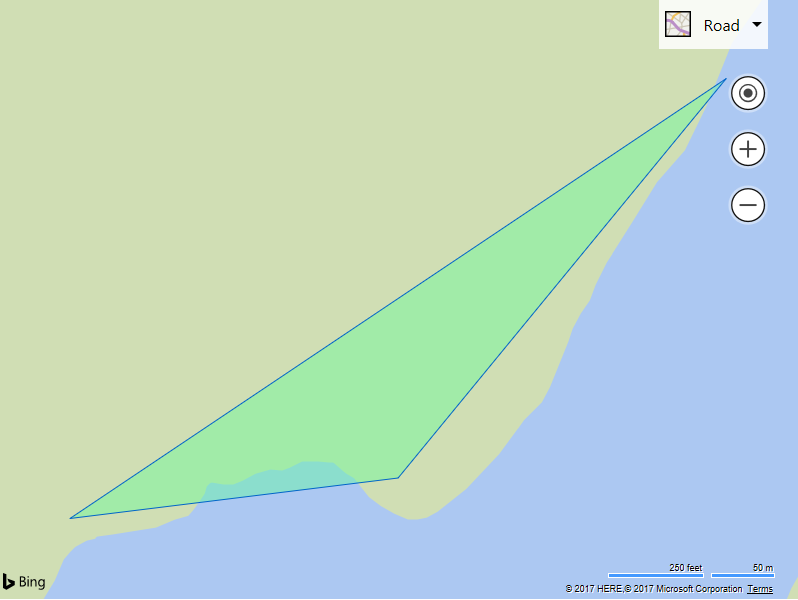Read GeoXmlLayer with XML String
Note
Bing Maps Web Control SDK retirement
Bing Maps Web Control SDK is deprecated and will be retired. Free (Basic) account customers can continue to use Bing Maps Web Control SDK until June 30th, 2025. Enterprise account customers can continue to use Bing Maps Web Control SDK until June 30th, 2028. To avoid service disruptions, all implementations using Bing Maps Web Control SDK will need to be updated to use Azure Maps Web SDK by the retirement date that applies to your Bing Maps for Enterprise account type. For detailed migration guidance, see Migrate from Bing Maps Web Control SDK and Migrate Bing Maps Enterprise applications to Azure Maps with GitHub Copilot.
Azure Maps is Microsoft's next-generation maps and geospatial services for developers. Azure Maps has many of the same features as Bing Maps for Enterprise, and more. To get started with Azure Maps, create a free Azure subscription and an Azure Maps account. For more information about azure Maps, see Azure Maps Documentation. For migration guidance, see Bing Maps Migration Overview.
Raw XML data that is stored as a string can be passed into the GeoXml read functions and GeoXmlLayer class. This sample shows how to easily pass in a string of GeoRSS data into a GeoXmlLayer and overlay it on the map.
<!DOCTYPE html>
<html>
<head>
<title></title>
<meta charset="utf-8" />
<script type='text/javascript'>
var map;
var georss = '<feed xmlns="http://www.w3.org/2005/Atom" xmlns:georss="http://www.georss.org/georss"><entry><title>Sample Polygon</title><georss:polygon>46.31409 -122.22616 46.31113 -122.22968 46.31083 -122.23320</georss:polygon></entry></feed>';
function GetMap() {
map = new Microsoft.Maps.Map('#myMap', {
credentials: 'Your Bing Maps Key',
zoom: 1
});
//Load the GeoXml module.
Microsoft.Maps.loadModule('Microsoft.Maps.GeoXml', function () {
//Create an instance of the GeoXmlLayer.
layer = new Microsoft.Maps.GeoXmlLayer(georss);
//Add the layer to the map.
map.layers.insert(layer);
});
}
</script>
<script type='text/javascript' src='https://www.bing.com/api/maps/mapcontrol?callback=GetMap' async defer></script>
</head>
<body>
<div id="myMap" style="position:relative;width:800px;height:600px;"></div>
</body>
</html>
Here is what this GeoRSS data looks like on the map.
